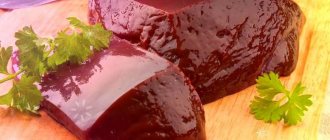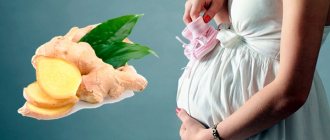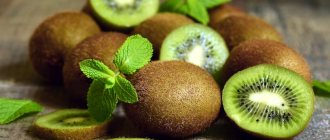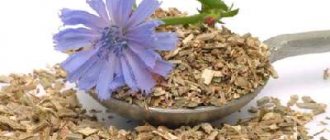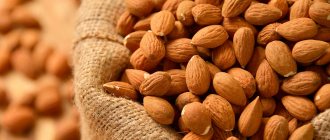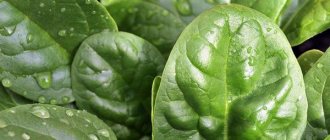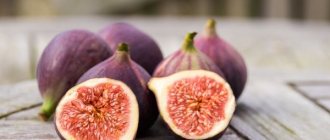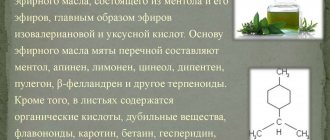Mint is a popular aromatic plant used in folk medicine, cooking and even in cosmetology. A fragrant mug of freshly brewed herbs can relieve tension, help cope with stress or heaviness in the stomach. Due to the minimal number of contraindications, it can be used by almost all people without restrictions. However, in the case of pregnant women, the situation is somewhat more complicated. During this important period of time, it is necessary to observe the drinking regime especially scrupulously. Is it possible for pregnant women to drink mint tea? This is a controversial question and causes a lot of controversy. Let's try to figure out how and when mint is useful, and under what conditions it is best to exclude it.
But what about leaves and flowers?
Many women drink mint tea throughout pregnancy because they really want it and the process itself gives a certain pleasure. We were unable to find any reviews of mint during pregnancy that indicated any harm to the woman or her child due to the mother's consumption of mint tea.
Otherwise, you should be extremely careful, but if you really want a cup of aromatic mint tea, then you shouldn’t deny yourself this.
Side effects
Any product can be both harmful and beneficial at the same time. Peppermint tea also has its side effects and contraindications:
- Mint can cause an allergic reaction if the female body is particularly sensitive to it.
- Estrogen hormones from plants in large quantities can provoke premature birth or termination of pregnancy.
- Consuming mint may reduce milk production.
- The plant lowers blood pressure, therefore it is not recommended for use during pregnancy by expectant hypotensive mothers.
- Mint does not always have a beneficial effect on the kidneys and liver , especially if these organs are susceptible to chronic diseases.
Pregnancy is a special state of the female body. And his reaction to a particular product is difficult to predict. Peppermint tea is no exception.
Just listen to your doctor’s advice and think about your future baby - and then this difficult period in your life will pass with minimal losses.
Which variety should I use?
The most popular is pepper. It has a pungent taste and smell. This type helps pregnant women feel better with:
Being an antispasmodic, the plant relieves pain quite well. Of course, the herb will not cope with severe pain, but if your stomach aches a little or your head hurts, try mint tea.
Mountain mint is a remedy for loss of strength, as well as a good diaphoretic. If you have a slight cold, lie down on the couch, drinking tea with mint and chamomile, and give yourself a short inhalation with eucalyptus vapor. The next day the cold will subside.
In ancient times, pennyroyal was believed to purify the blood. It also helps with headaches and heartburn. And if you have a cough, the vapors of pennyroyal will ease expectoration and clear the airways of mucus.
Can pregnant women drink and eat mint?
It is impossible to say for sure whether mint is harmful during pregnancy, because the body of each individual woman reacts to it in its own way. But if you feel the need for this plant or have a passionate desire to drink a cup of aromatic mint tea, then there is no reason to be afraid and deny yourself the pleasure.
Reviews indicate that almost every woman during the entire period of bearing a child at least once drank mint tea and did not experience any negative consequences. Moreover, many expectant mothers eat mint in bunches and drink drinks based on it throughout their entire pregnancy. This is the only way, they say, to save them from nausea and heartburn.
It should be noted that ongoing medical studies have not found any undesirable effects of mint on the body of a pregnant woman and the developing fetus, but the beneficial effect is a proven fact. So draw your own conclusions...
However, despite the usually good tolerance of this medicinal plant, one should not forget about caution. Experts agree that if a pregnant woman does not experience any discomfort from drinking mint, then there is still no need to drink more than 2-3 cups of tea a day.
Especially for belattra.ru - Elena Semenova
The benefits of mint for pregnant women
Sometimes an expectant mother wants to brew a cup of aromatic mint tea, but there is an opinion that it is undesirable to consume mint during pregnancy. This is due to the fact that it contains a large amount of estrogens - hormones that can trigger the onset of labor.
In fact, everything is not so sad and you shouldn’t categorically deny yourself the pleasure of drinking a healthy mint drink. Drinking 1-2 cups a day will not harm the health of either the pregnant woman or her baby.
Mint in reasonable quantities has only positive effects:
- Effectively fights toxicosis
Toxicosis is the most common condition during pregnancy, especially in the early stages, manifested by frequent nausea and vomiting. Few people manage to escape these painful hours.
Mint is a remedy that quickly eliminates the manifestations of toxicosis. Obstetricians and gynecologists advise constantly carrying a handful of mints with you and drinking tea with the addition of peppermint.
For many, this option becomes the only salvation for unpleasant symptoms, relieving cramps.
- Heartburn remedy
Even if a woman has never experienced heartburn, it cannot be avoided during pregnancy.
Vivid manifestations begin in the later stages, when the enlarged uterus puts pressure on the internal organs, provoking the reflux of gastric juice into the esophagus. A burning sensation and pain occurs after almost every meal, tormenting the expectant mother.
The pharmaceutical market is represented by a wide range of medications approved during pregnancy, but you should not immediately run to the pharmacy. It is recommended to brew tea from mint leaves or add them to regular black tea. 2 mugs a day will get rid of this trouble. About heartburn during pregnancy
- Treats constipation
During pregnancy, problems with the gastrointestinal tract inevitably arise - intestinal tone decreases, which leads to constipation.
Difficulty in defecation is an unpleasant and dangerous condition that must be eliminated as soon as possible.
Mint has a mild laxative effect and solves the problem of constipation, flatulence disappears and pain in the intestines goes away.
- Has a beneficial effect on the nervous system
The period of bearing a baby is joyful and exciting for every woman. At any stage, she worries about the continuation of the pregnancy, about the health of the child and how the birth will go. All these thoughts, combined with the influence of hormones, provoke stress and insomnia.
One cup of mint tea helps calm the nervous system and helps improve sleep.
- Has bactericidal properties
During pregnancy, a woman is not immune from colds. Meanwhile, taking medications is undesirable, especially in the 1st and 3rd trimesters.
Mint will come to the rescue, having an anti-inflammatory and analgesic effect - 2 mugs of decoction will help cope with a cold and eliminate a sore throat.
To enhance the therapeutic effect, you can drink tea with lemon during pregnancy; it will strengthen the body's defenses.
- Improves facial skin
Hormonal changes in the body affect the condition of the facial skin: oily shine and inflammation appear. But pregnancy is not a reason not to take care of your appearance. Drinking half a glass of mint infusion a day can get rid of acne. It can also be used instead of a toner by wiping your face with a moistened cotton swab in the morning and evening.
The benefits of mint during pregnancy are undeniable, but you should always take into account contraindications to its use in order to avoid harm to the child.
Can pregnant women have mint tea?
The question of whether pregnant women can drink mint tea should be decided in the doctor’s office, since there may be individual contraindications to drinking the drink. If there is no threat of miscarriage, mint can be very useful: it contains ascorbic acid, tannins, flavonoids, and carotene. All these substances help make pregnancy easier and ensure the full development of the baby.
We invite you to familiarize yourself with Antipka cherry, or Magaleb cherry, Magadebka (Prunus mahaleb (L.) Mill)
How to brew correctly
Making green tea with mint is not at all difficult, especially since the technology for preparing such a drink is practically no different from the technology for preparing black tea.
1 tbsp. l. peppermint leaves (without a slide) and 1 tbsp. l. green tea leaves are poured into 1 liter of boiling water and left to steep for 7 - 10 minutes.
After this time, the drink is filtered, adding sugar, lemon, lime or honey if necessary. By the way, due to the fact that the latter is also a strong allergen, it would not hurt to consult a doctor before consuming it.
There is also an express way to obtain a flavored drink. To do this, place one green tea bag and 3-4 fresh mint leaves directly into the mug. All this is poured with boiling water and infused for about 5 minutes. As a result, we get green tea with mint quickly and without any hassle!
Is it possible to use and take mint during pregnancy?
Perhaps you have never asked this question, but stumbled upon the topic by accident. Well, can such a harmless and useful plant really be something dangerous? Let's figure it out.
Doctors unanimously warn all pregnant women to refrain from taking medications throughout the entire period of pregnancy. But medicinal herbs, which include mint, are also medicine, only natural. And like any other, it has indications and contraindications. Among the latter is also pregnancy.
However, mint is often recommended to pot-bellied mothers as a means of treating many ailments, and more often than others, to eliminate nausea and heartburn. bloating. Moreover, it is not recommended by street grannies, but by obstetricians and gynecologists from the antenatal clinic. To be more precise, they allow you to drink 3-4 cups of aromatic and tasty mint tea a day. But it must certainly be tea purchased at a pharmacy - with quality control passed, without impurities or additives.
As you can see, there are diametrically opposed opinions regarding the use of mint during pregnancy. But here’s what all doctors and herbalists agree on: mint essential oil is strictly prohibited during pregnancy!
Mint during breastfeeding: effect on the newborn
Pharmaceutical packages containing mint indicate that the herb reduces lactation and is therefore contraindicated during breastfeeding.
But at the same time, it is often added to the collection, which improves the production of breast milk. So can a nursing mother use it?
It turns out that there are about 25 varieties of mint. And each of them has its own effect on the female body. Some contain essential oils that improve lactation, while others, on the contrary, suppress milk production.
When breastfeeding, peppermint not only has a beneficial effect on the entire body, but also improves blood circulation in the breast, dilating blood vessels, which results in a flow of milk.
But this is when drinking one cup of mint tea per day and only with established lactation. If there is not enough milk, it is better not to risk it and replace the mint tea with chamomile or tea with thyme.
Tea with menthol-free spearmint is more suitable for nursing mothers. The substance carvone included in its composition stimulates milk production. Not only can you drink spearmint tea, but it is highly recommended.
It is useful to add garden mint in small quantities to tea when breastfeeding. But at the same time, you need to carefully monitor the baby’s behavior and well-being.
The young mother herself chooses a convenient form of the drug. It can be fresh mint leaves - 1 tbsp. per glass of boiling water. 1-2 leaves can be added to green tea. The drink is also prepared from dried mint (1 tsp per glass of water, infused for half an hour).
Mint is part of herbal preparations. It is better to buy them at the pharmacy rather than prepare them yourself.
A mint bath is often used to bathe a newborn. Peppermint is useful for an infant because it relieves irritation, skin itching, and also has a calming effect.
To stop breastfeeding, you should gradually reduce the number of times your newborn is put to the breast. When the baby eats milk only once a day, the breasts will stop filling, and lactation can be canceled.
To do this, a mixture of peppermint and sage (1 tablespoon each of both herbs) is poured with boiling water and left for half an hour.
Mint tea is drunk 4 days in a row, 3-4 cups daily. After a short break, the course can be repeated if necessary.
In any case, before practicing the use of the drink, it is best to consult a doctor about this. If you feel worse when taking mint tea, it is better to avoid it altogether.
Can mint be used during pregnancy?
There are about 20 varieties of mint, but peppermint is more famous. It is she who has firmly entered into our everyday life. The plant contains organic acids, essential oils, phytoncides, tannins, flavonoids, vitamins and beneficial microelements. Shoots, leaves and inflorescences are used as raw materials.
Mint is an estrogen-containing product, so there is an opinion that it can provoke premature onset of labor. But do not be afraid, because the only danger is the excessive consumption of this plant.
During normal pregnancy, mint (in moderation) does not have a negative effect on the health of mother and baby. Doctors classify it as one of the drugs allowed during pregnancy. Many doctors even recommend using mint tea to eliminate symptoms of toxicosis, headaches and other ailments that often occur in pregnant women.
The uniqueness of mint
Peppermint leaves contain a large amount of volatile oils:
- menton;
- dipentene;
- limonene;
- menthol, etc.
In addition, this part of the plant is rich in various acids, enzymes, tannins, macro- and microelements, amino acids, vitamins and salts. The most essential oil is found in mint flowers, less in the leaf blades and very little of it is contained in the stems.
Preparations made from the plant improve the functioning of the digestive tract, relieve nausea and are characterized by diuretic properties. With their help, the condition of purulent bronchitis improves. For angina pectoris, the herb dilates blood vessels and can reduce blood pressure.
The uniqueness of mint lies in the fact that it removes excess fluid from the body, relieves spasms and pain, relieves inflammation, and accelerates hair growth. When used, bad breath disappears, appetite decreases, and skin cleanses.
The plant helps remove stones from the gallbladder and cleanse the liver. In addition, it has a complex effect on the nervous system: improves brain function, eliminates insomnia, calms and tones.
Mint during pregnancy: harm and contraindications
The relaxing properties of mint have more than just benefits. As a result of this action, it is possible to reduce the tone of blood vessels and, as a result, lower blood pressure. which is something that people who are prone to this should definitely take into account. Therefore, you also need to be careful with varicose veins.
Never forget that intolerance to a particular plant may arise for the first time during pregnancy, and in a very pronounced form. Therefore, you always need to monitor your body’s reaction no matter what you eat, even if you have never had an allergy to this product before.
The fragrant leaves of the plant are very rich in phytoestrogens - analogues of female sex hormones. Their excess in the body of a pregnant woman tones the uterus, which is fraught with the threat of termination of pregnancy, miscarriage and premature birth. For this reason, obstetricians and gynecologists urge their patients to use mint tea with extreme caution during pregnancy. But if you are post-term, mint tea in late pregnancy can be a good stimulant.
All the described beneficial and dangerous properties are equally present in both fresh and dry mint during pregnancy. But doctors do not recommend using mint essential oil during pregnancy.
Contraindications and precautions
The esters in mint are considered very strong allergens. Therefore, cases of allergic reactions to its use in medical practice are far from uncommon. Mint is contraindicated in case of individual intolerance to its constituent components. If you have any history of food or contact allergies (medical history), the use of mint either internally or externally is also not recommended. You should not try mint for the first time while you are pregnant.
The use of mint during pregnancy may be limited for several other reasons:
- due to the fact that mint reduces the tone of blood vessels, it should not be taken orally for hypotension (low blood pressure) and varicose veins;
- due to the plant’s ability to reduce the production of breast milk, tea with mint leaves and mint products should be stopped a month before giving birth;
- due to the choleretic and diuretic effects of mint, it cannot be included in the diet for certain chronic diseases of the liver and kidneys;
- due to the relaxation of the smooth muscles of the sphincter between the esophagus and the stomach, after eating mint, heartburn (gastroesophageal reflux) may occur - this problem is often encountered by mothers in the second half of pregnancy, and it is better to refrain from mint products in order to avoid the repetition of unpleasant sensations again and again;
- Due to mint’s ability to calm and relax the nervous system, the plant is not recommended for pregnant women with chronic fatigue and drowsiness (or it is recommended to use it together with black or green tea).
To protect herself and the unborn baby from side effects after consuming mint, the expectant mother should use this medicinal plant exclusively as prescribed by the attending physician and not exceed the recommended daily allowance. Mint is an emmenagogue plant. This means that its uncontrolled ingestion can cause complications during pregnancy and a worsening prognosis for its outcome (up to miscarriage or premature birth in severe cases).
Many women (as well as doctors) do not know that a huge number of medicinal plants suppress ovulation and stimulate uterine contractions, that is, they have abortifacient properties and are also toxic to the embryo. "Emmenagogue" is translated as "causing menstruation." Emmenagogues include drugs and medicinal plants that provoke menstrual bleeding. Their action is most often based on provoking endometrial detachment and uterine contractions, so they can be dangerous for pregnancy. It is very difficult to draw a clear line between emmenagogues, abortifacient plants and those that stimulate uterine contractions, and one must also take into account the combined effects of medicinal plants, which may also depend on the dose and form of the drug.
Elena Petrovna Berezovskaya - doctor-researcher, obstetrician-gynecologist, founder and director of the International Academy of Healthy Life, author of books, publicist
https://lib.komarovskiy.net/lekarstvennye-travy-i-beremennost.html
Pregnant women, in the absence of contraindications, can: per day:
- use up to 1 g of fresh mint or up to 0.5 g of dry mint as a seasoning;
- or drink 1 cup (200 ml) of mint tea;
- or take an infusion of 25 ml 4 times (100 ml per day);
- or eat several mint candies (1-3 pieces);
- or allow yourself a couple of mint gingerbread cookies for tea.
It is recommended to take a one- to two-day break from consuming mint products every 3-4 days to avoid a cumulative effect and a decrease in the effectiveness of the therapeutic use of mint.
Mint purchased at a pharmacy is considered safe - it has passed quality control, certified and complies with all sanitary standards. You can prepare it yourself.
Only subject to certain rules.
- Plants from your own garden or vegetable garden or those that grow away from highways and industrial areas are suitable for collection.
- Mint is cut before flowering begins - most often in June.
- Dry naturally without exposing the shoots to direct sunlight.
- Store in a tightly sealed glass container in a dark place until next summer.
Mint is harvested before flowering - when its shoots have the highest concentration of nutrients.
You can personally collect tea blends with mint, rose hips, dried fruits and berries, and medicinal herbs. You can buy ready-made tea compositions in tea shops. However, care should be taken when choosing the plants in the composition. Some of them - anise, basil, barberry, hibiscus, cloves, pomegranate, oregano, calendula, lavender, licorice, etc. - may not be recommended in certain circumstances during pregnancy. Remember to discuss changes in your treatment and diet with your doctor.
Every pregnant woman must adhere to two golden rules: firstly, if there is no serious need for taking medicinal herbal preparations, they do not need to be taken, and secondly, for the sake of safety and to prevent harm to the developing fetus and the mother’s body, every woman should know the composition of the drug that is offered to her for a specific purpose. Sometimes this goal may not have a therapeutic effect, but be the result of an interest in making a profit from the sale of a certain company’s products.
Elena Petrovna Berezovskaya - doctor-researcher, obstetrician-gynecologist, founder and director of the International Academy of Healthy Life, author of books, publicist
https://lib.komarovskiy.net/lekarstvennye-travy-i-beremennost.html
In the early stages
In the early stages of pregnancy, the expectant mother experiences the first changes in her body. Toxicosis, bloating and insomnia force us to look for means to relieve new sensations without harm to the health of mother and baby. Mint can help cope with unpleasant symptoms if there are no contraindications, such as individual intolerance or hypotension.
It is important to remember that despite its exceptional benefits for the body, mint can harm the expectant mother by lowering blood pressure below normal. Therefore, you should monitor your own well-being and, if negative changes appear, abandon drugs and traditional medicine based on this plant, after consulting with your doctor.
We suggest you read: How to properly prune grapes in the fall
What are the benefits of mint?
Thanks to its rich chemical composition, mint is used for an impressive list of diseases, and during pregnancy it can be an excellent analogue of synthetic drugs.
Peppermint tea is an excellent remedy for toxicosis in the early stages. Thanks to the active components included in the tea, the functioning of the digestive system is restored, nausea and bloating disappear, and constipation disappears. In case of frequent dizziness, a mug of aromatic drink will also become an invaluable helper.
Aromatic tea has a beneficial effect on the central nervous system, bringing it into a balanced state and helping a woman cope with panic attacks, anxiety, headaches, and insomnia. This effect has a pronounced beneficial effect on the emotional state of both the pregnant woman and the unborn baby.
Mint herb contains copper, which stimulates the absorption of iron and eliminates oxygen deficiency, thereby reducing the risk of iron deficiency anemia during pregnancy.
For colds in pregnant women, mint also finds its use. The use of medications, especially in early pregnancy, is not always acceptable. Peppermint tea has excellent anti-inflammatory, antiseptic, diaphoretic, and analgesic effects. In addition, mint is an excellent immunomodulator, so it can also improve the condition of the immune system, helping to prevent catching a cold.
The herbal decoction has proven itself well for heart diseases accompanied by increased blood pressure.
With severe swelling and varicose veins that accompany pregnancy, a healing drink can greatly help and alleviate the condition.
Features of the use of mint
If a pregnant woman is not allergic to mint, you can use the aromatic plant to improve the health of the whole body. And you shouldn’t limit yourself to restorative tea.
For example, you can use the following recipes:
- For toxicosis in pregnant women, a decoction that, in addition to mint, contains marigold flowers, yarrow herb and valerian roots has proven itself to be excellent. All components are mixed in equal proportions. Brew 2 teaspoons of the plant mixture with 2 cups of boiling water. After half an hour, the infusion is filtered and taken 50 ml up to 6 times a day.
- Pregnant women's skin is often prone to irritation and peeling. An infusion will help you cope with the problem; to prepare it, just pour a tablespoon of fresh or dried mint into a glass of boiling water. The face and body are lubricated daily with the resulting strained infusion, which increases skin elasticity, relieves irritation and evens out its color.
- You can relieve the symptoms of nausea and heartburn with a few mint leaves added to food, for example, in a fresh vegetable salad.
- The aroma of fresh mint will help quickly get rid of a runny nose. Essential oils containing menthol should be avoided during pregnancy, as they often cause allergies.
- The headache will go away within a few minutes. To do this, it is enough to replace the pills that are harmful to the health of the pregnant woman and baby with an alcoholic mint tincture. To prepare it, a teaspoon of dry herb is poured with 100 ml of alcohol and infused in a dark place for a week. At the first symptoms of a headache, you need to lubricate your temples with mint infusion.
- A bath with mint and other aromatic herbs will help relieve tension, improve blood circulation and calm the nerves. To prepare it, take a tablespoon of dried mint, calendula, chamomile and horsetail, pour the mixture with a liter of boiling water and leave covered for half an hour. Pour the strained infusion into a warm bath. The duration of the procedure is 20 minutes.
- Sore throat? Mint tea, to which a teaspoon of salt is added instead of honey or sugar, will help alleviate the condition. Gargle with the infusion several times a day until the unpleasant symptoms are relieved. An additional bonus will be the fresh breath that mint mouth rinsing provides.
Mint tea
When brewing mint tea, you need to consider the difference between dry and fresh leaves. When using the latter, the concentration of vitamins and oils in the final product will be slightly higher. To keep the leaves fresh, you can store them in the refrigerator in a plastic bag. Bagged mint teas have the lowest concentration of medicinal components, so it is much healthier to prepare a drink from whole leaves.
The most basic version of the drink is suitable for those who prefer to do without unnecessary additives or are in a hurry to take a healing drink. The recipe is simple: while the water is boiling, separate the leaves from the branches, rinse, lightly mash and place in a teapot or mug. 5-6 minutes are enough for brewing. If desired, you can sweeten with a spoonful of sugar or honey. If you want variety without unnecessary hassle, after brewing, you can add strawberries or other aromatic berries mashed with honey to the tea.
We open the question: Is it worth taking Elevit vitamins during and when planning pregnancy?
Tea gourmets should try this recipe.
- Mix 100 ml of apple juice with 700 ml of water and boil.
- Make a brew from 10 grams of black tea, 20 grams of mint and chopped apple peel from one apple.
- Pour boiling water over it all and wait 7 minutes.
For nausea
Mint is often added to herbal mixtures, on the basis of which you can brew a drink aimed at combating the manifestations of toxicosis. When preparing tea for nausea, the expectant mother will need:
- mint leaves, valerian roots, yarrow, marigolds (flowers) - 2 tsp each;
- 2 tbsp. water.
The mixture of herbs is poured with water brought to a boil and infused for 30 minutes. Then the drink is filtered. You need to consume this infusion 6 times a day, no more than 50 ml.
What does it help with?
The aroma of mint effectively calms and relieves stress. That is why during pregnancy women often prefer mint infusion to the usual black tea at the level of instinct.
The drink copes well with intestinal spasms, normalizes metabolic processes, and improves the functioning of the entire nervous system. During pregnancy, women often suffer from disturbances in the gastrointestinal tract. You can also get rid of bloating, diarrhea and constipation with the help of fragrant mint.
Peppermint has also proven itself well as a means to combat toxicosis, which often torments expectant mothers. The aromatic herb lowers blood pressure and thins the blood. Teas and infusions based on mint are effective for laryngitis, muscle and heart pain. Drinks and baths with mint help cope with insomnia and effectively relieve nervous tension.
We invite you to familiarize yourself with Chicken roll - 13 recipes at home
Proper use of mint during pregnancy
In traditional medicine, the use of mint during pregnancy is not prohibited, but all products containing mint are sold with the label “use with caution during pregnancy.” Therefore, doctors recommend using mint in the form of:
- weak tea or fresh leaves (for chewing for nausea);
- decoctions for gargling or treating skin;
- essential oil for dosed aromatherapy;
- mint lozenges;
- mint candies (for sore throat and cough).
With the help of such treatment methods, many health problems are eliminated for a pregnant woman without taking synthetic drugs.
In what form can mint be consumed and in what form not?
Scented green leaves
The expectant mother can simply chew fresh mint to relieve an attack of nausea, add it to salads, drinks, desserts and even baked goods. The grass should first be washed and dried. The main thing is that you should not eat fresh mint in bunches; most likely, your doctor will advise you to limit yourself to 3-4 leaves per day .
Recent Entries
Is it possible to give a mirror: how to protect yourself from bad omens It became known about the influence of cell phone towers on human health Is it possible to eat bananas bought in Russia?
If you grind the leaves in a blender, they will add more flavor to the dish.
The pleasure of drinking aromatic tea
Often, to establish a drinking regime during pregnancy, women are advised to limit the consumption of coffee, black and green teas due to their strong tonic effect, as well as their ability to remove large amounts of water from the body. In order to maintain the optimal water balance necessary for proper metabolism, it is recommended to switch to herbal teas . Tea with mint is one of the undoubted favorites of expectant mothers, since mint does not have a negative effect on the health and development of the embryo.
Peppermint tea has a low concentration of menthol and is not contraindicated for pregnant women in the amount of 1–2 cups per day
The easiest way to consume mint is to brew it like any herbal tea. You should take 2-3 teaspoons of crushed dry leaves and pour 500 ml of hot water over them.
Since boiling water, as a rule, destroys vitamins and beneficial microelements, you should not use too hot water.
The drink should steep for 20–30 minutes. It is often recommended to drink mint tea chilled, preferably before meals.
Mint can be added to various drinks, both hot and cold.
You can add a little dried mint to weak black or green tea.
As prescribed by a doctor - infusion and decoction
Infusion and decoction are much more concentrated liquids than tea. Drinking them during pregnancy is permissible only for specific indications and according to the dosage regimen that your doctor will prescribe for you .
Medicinal plants, like tablets, have contraindications and side effects.
According to medical guidelines, mint leaves are indicated for nausea, vomiting and colic.
It is best to buy mint leaves at a pharmacy, since the herbs that go on sale undergo high quality control. Instructions for the medical use of peppermint leaves indicate the following method for preparing the infusion:
- 3 filter bags (4.5 g) are placed in glass or enamel containers;
- pour 200 ml of boiling water;
- cover and leave for 15 minutes, periodically pressing on the bags with a spoon;
- squeeze out the bags;
- The volume of the resulting infusion is brought to 200 ml with boiled water.
From dry, unpackaged raw materials, the infusion is prepared a little differently: a tablespoon of raw materials (about 5 g) in an enamel container is poured with a glass of hot boiled water and simmered in a boiling water bath under a lid, stirring, for 15 minutes, then cooled to room temperature and filtered. The volume of infusion is adjusted with boiled water to 200 ml.
Mint infusion is taken orally in small quantities one or several times a day, usually the doctor prescribes it before meals. Shake the liquid before use.
In folk medicine, there are often recipes for mint infusion. It is worth noting that only infusion is considered a scientifically approved remedy. Due to long boiling and digestion, the decoction has a different chemical composition. Therefore, check with your doctor exactly what he prescribes and for what purpose.
Essential oil and mints
It is important to know that consuming mint essential oil during pregnancy is strictly contraindicated. If the content of essential oils in mint leaves, flowers and stems ranges from 3 to 7%, then the essential oil is a pure product, and, therefore, its effect is enhanced many times over. For this reason, you should never add it to tea or baked goods, or eat it in any other way. Peppermint essential oil, as mentioned above, can be used within reasonable limits for baths, inhalations and compresses.
Even the cosmetic use of essential oils during pregnancy should be discussed with your doctor.
It should be borne in mind that not all modern food and medicines with a mint smell and taste actually contain mint. The chemical industry has long learned to synthesize the taste and aroma of mint, so not the natural extract of the plant is often added to food products, but synthetically obtained menthol . Naturally, such products do not have a healing effect. In addition, artificial menthol can also cause allergies.
Most mints contain artificial menthol.
A pregnant woman should especially carefully study the labels of the products she consumes for the substances they contain.
Directions for use and dosage
The recommended form of consuming mint for the expectant mother is teas, infusions or decoctions. Moreover, for their preparation it is allowed to use only pharmaceutical raw materials. This product is environmentally friendly, and special bags with the optimal dosage are convenient for making tea.
Mint during pregnancy is used in accordance with a number of rules:
- You should not drink more than 3-4 cups of tea per day.
- It is better to drink the drink before bed, as it has a calming and relaxing effect.
- The course of taking mint should not last more than 3 months.
Tea with oregano
Oregano flowers have a slightly tart odor that vaguely resembles the aroma of thyme. Oregano has many beneficial qualities. It is an excellent anti-inflammatory and analgesic. Its use in the treatment of colds gives good results.
But, unfortunately, this medicinal plant is contraindicated during pregnancy. This is due to the fact that it promotes contraction of the muscles of the uterus, which can lead to miscarriage. Therefore, you will have to give up aromatic tea with oregano until the baby is born.

